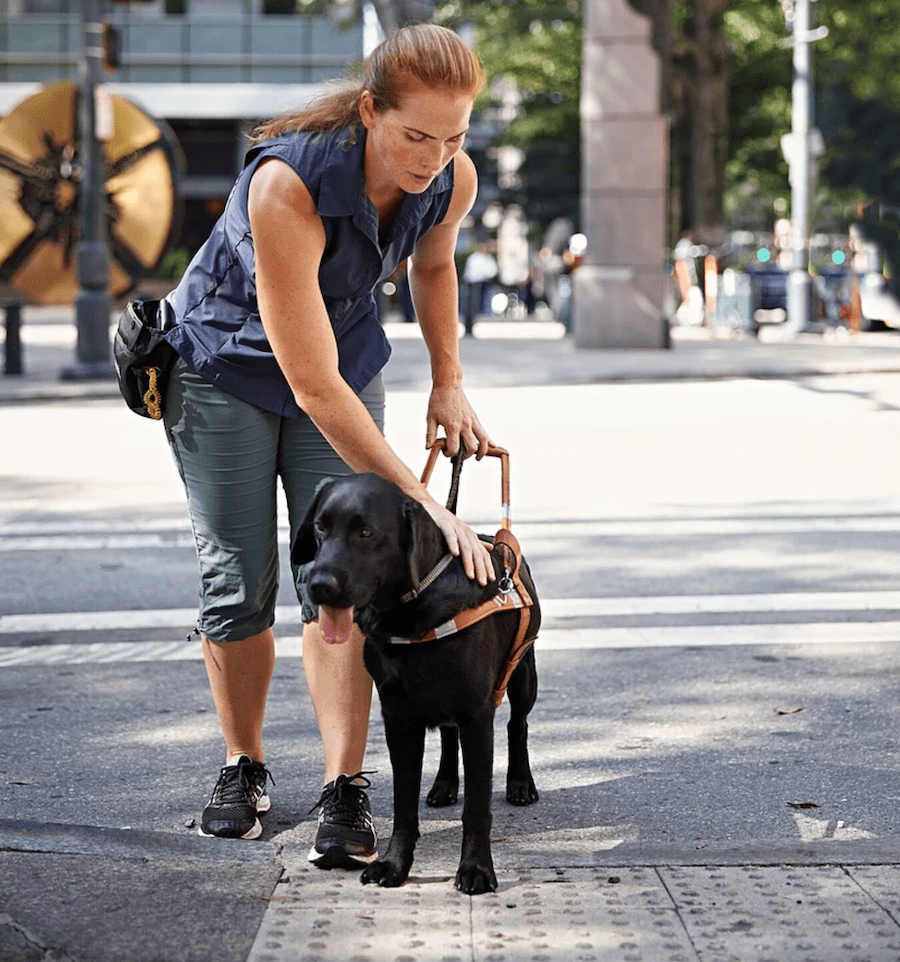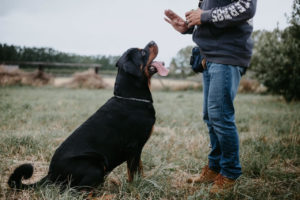Can we tell you a secret?
DOG·CLT exists because we wanted an easier way to find good info about life with dogs in Charlotte.
We’re not just talking things to do or dog-friendly events (though we have fun writing about those, too). We’re talking about all the things related to loving and living with dogs in the Queen City. We wanted to find more of it in one place. And at the top of that dog-friendly wish list? Advice from local pros who work every day to keep our dogs happy, healthy and safe.
Enter Rebecca Golian of Love in the Lead.

Rebecca is a Charlotte dog trainer with more than 15 years of experience in dog training and behavior modification. She’s also a qualified guide dog mobility instructor. Rebecca’s philosophy is simple: better communication with our dogs builds trust and respect, which ultimately helps us live better together.
A few times each month, Rebecca will be here with dog training tips and answers to your questions about everything from working with a trainer to prepping your dog for potentially stressful situations like holiday company chaos or loud noises and distractions in public spaces.
To kick things off, we asked Rebecca to give us a breakdown of why training is so important. Here’s what she said.
Why should I train my dog?
There are several reasons, the most important of which is that training your dog creates good communication, something that’s vital for a healthy, respectful relationship.
When we think about dog training, typically what we’re talking about is dog obedience. Commands like sit, down, stay, come, place, etc. should be part of any dog training program. They’re beneficial for you and your dog, and the process of learning them is fun, engaging and rewarding for you both.
Here are four more benefits of training your dog:
Prepare your pup to do more with you
We live differently with our dogs than we did 15 or 20 years ago. We include them in so many more activities now, such as traveling, hiking and backpacking, outings to local dog bars and restaurants, trips to dog-friendly stores, parades, fairs, dog parks, recreational parks, sporting events, etc. To include our dogs in all those fun activities, they need to be obedient and well-behaved – but first, we need to teach them what that means.
Raise a calm, confident dog
These two traits are absolutely necessary for our dogs to join us in public. It’s unsafe and unhealthy for dogs to pull us down the sidewalk or bark and lunge at distractions. It frustrates and stresses them and it’s a bad look for us. I want my dogs to be on their best behavior in public because it doesn’t just reflect on me, but on dog ownership in general. Dogs are more likely to be welcome in public places when we all do our part to ensure ours are well-behaved and under control.
Improve four-legged social skills
Most people think of “socialization” as having a friendly dog that likes to meet everyone and every dog. But it goes far beyond that. Socialization also includes dogs’ ability to exist around many types of distractions and be comfortable in a variety of environments. Not all dogs are genetically predisposed to be confident and relaxed in different scenarios, so we can use training to help get them there.
Stop problem behavior before it starts
Training can help stop problem behaviors, or better yet, prevent them from happening in the first place. Many times, what owners perceive as “problem behaviors” like barking, marking and chasing are actually normal dog behaviors. Properly trained dogs are less likely to behave in unfavorable ways – we just need to teach them which behaviors are acceptable and which are not.
So what kind of training is right for your dog and when should you start? We’ll tackle both questions in our next dog training column in two weeks.






2 thoughts on “4 Big Benefits of Training Your Dog”
At the moment I am not blessed with a dog in my life. I lost my sweet Springer spaniel of 13 years two years ago. I’m still mourning her but I am starting to miss the companionship of having a dog in my life. I’m just not sure I can deal with the heartache of loosing another best friend. I thoroughly enjoy your articles and website. Thank you!
Oh, Francie, I’m so sorry for your loss – and I hear you. I’ve had so many people ask if / when we plan to get a second dog again, but I haven’t been ready either. We’ll know when it’s the right dog and the right time!